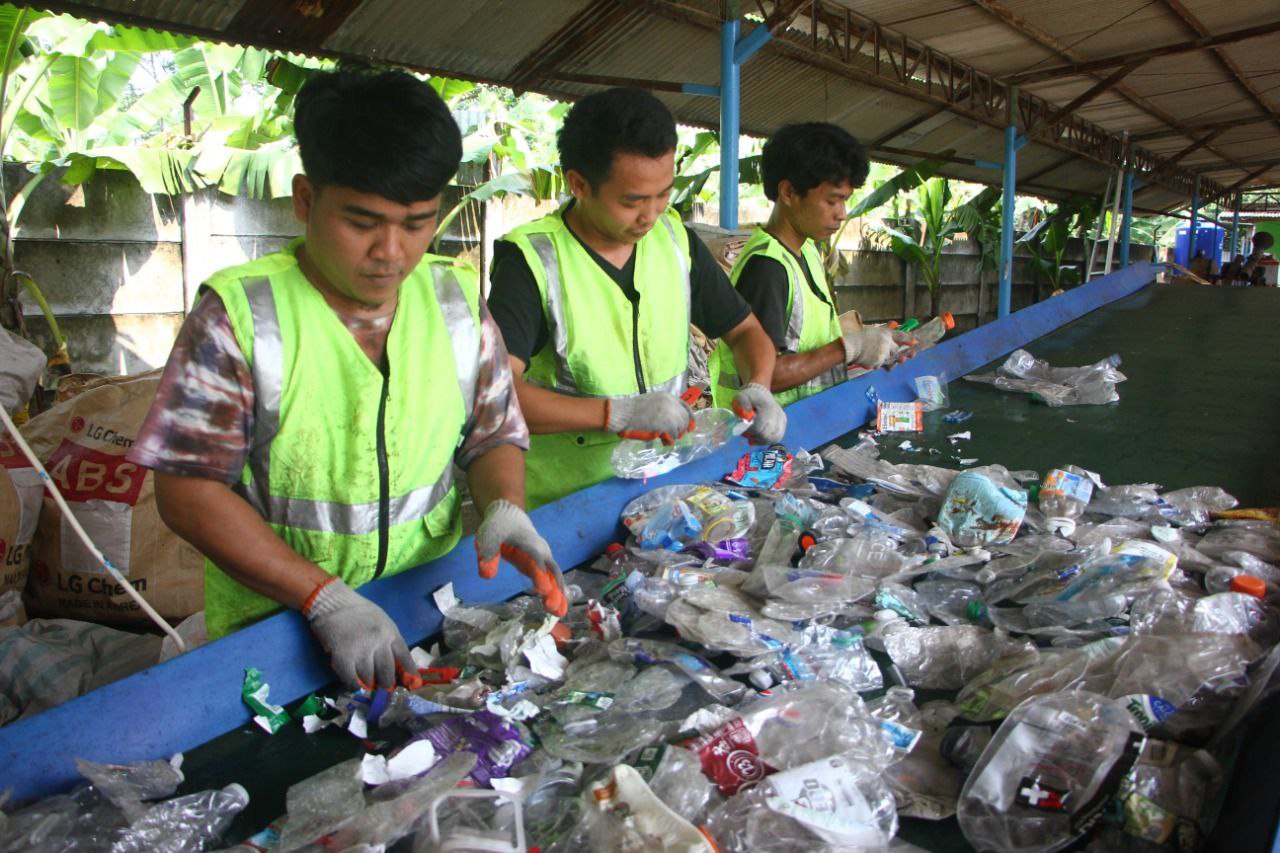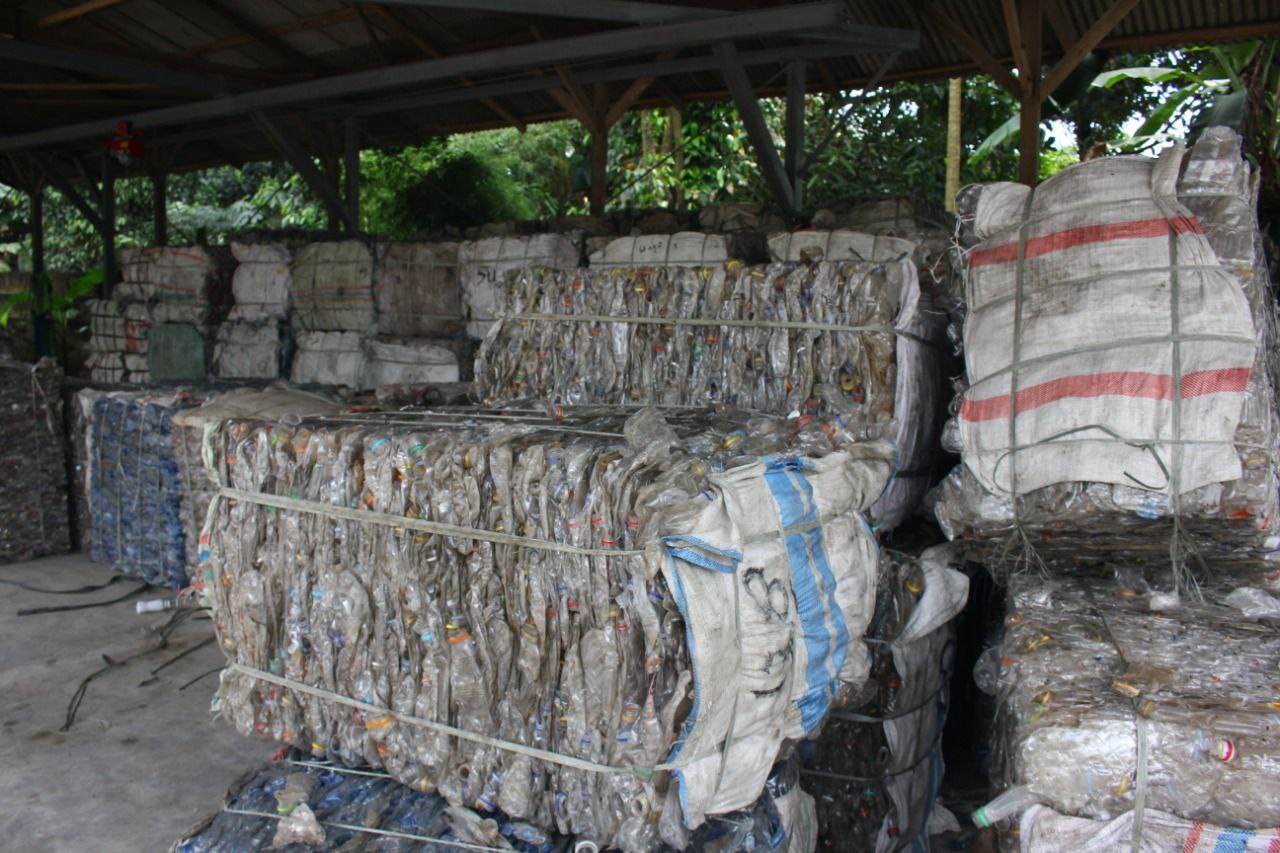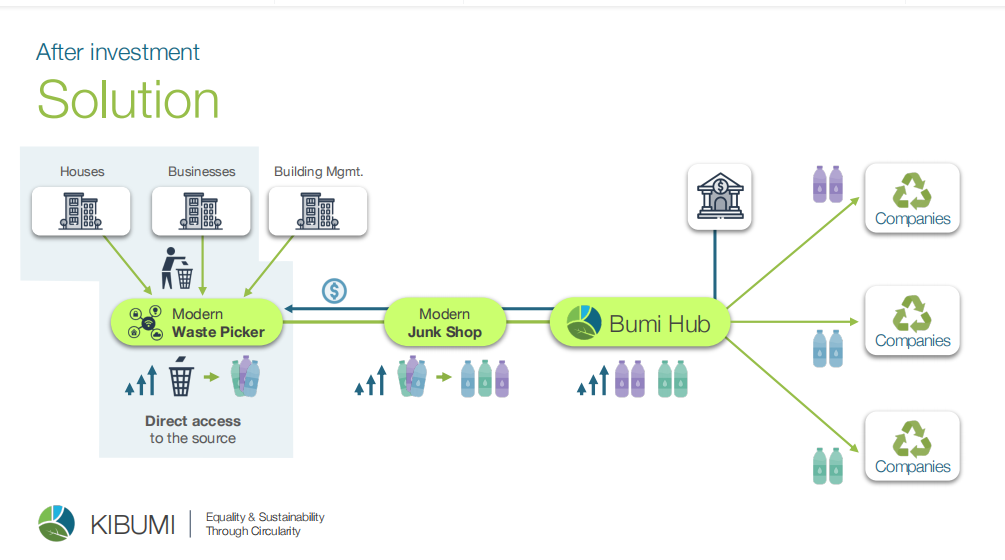Kibumi's Efforts to Bridge Scavengers and the Recycling Industry While Fighting Garbage
Currently seeking seed funding of $5 million
It is a common fact that Indonesia is in a waste emergency situation. Referring to Bappenas data, Indonesia produces 6,8 million tons of plastic waste every year. This amount is expected to double to 13,6 million tons in 2040.
This problem is getting more critical because only about 30% of plastic waste in Indonesia is managed. Meanwhile, the rest will pollute the sea, be burned, or disposed of carelessly, thus posing a threat to the environment and biodiversity. This condition is exacerbated by the fact that the industry recycling in Indonesia it struggles with the low supply of recycling in the field. Ironically, they have to import from abroad.
"This industry is still very dependent on the traditional value chain, where 80% of recycled goods are collected from there. In Indonesia alone, the recycling industry imports 800.000 tons of recycled goods annually to fill supply gaps," explained Kibumi Founder and CEO Hadiyan Fariz Azhar when contacted DailySocial.id, Thursday (15/12).
It was the issue of waste that ultimately became the forerunner to its birth Kibumi in 2019. Fariz, Hadiyan's nickname, saw that waste in Indonesia was very unmanaged. However, there is a recycling industry that is very dependent on the presence of this waste.
Another problem arises, it turns out that up to now the recycling industry has not been able to reach TPA (final disposal sites) or similar locations. Apart from not having access, most of the waste that has entered there has been piled up and the quality continues to decline because it has been mixed with other types of waste for a long time.
"We see from the circular economy side, there is a broken chain because the sources of waste, namely households, factories and offices, are not connected to the recycling industry. This is the side that we thought needed to be filled," he said.
The founders of Kibumi consisted of four people. Apart from Faiz, there are Andi Manggala Putra (CFO), Wahyudin Gorang (COO), and Christine Halim (Commissioner). Each background of the founders supported each other in establishing Kibumi. The meeting of the three of them with Christine, who joined as ADUPI (Indonesian Plastic Recycling Association) strengthened management fundamentals at Kibumi.
Kibumi itself means We Earth. Faiz wants to invite people to take care of the earth again by taking care of themselves.
Kibumi business model
Kibumi's initial business model is similar to what is being run by Octopus, moneyand Recosystem, namely taking waste from households by paying a monthly fee ranging from IDR 50 thousand to IDR 100 thousand. There are a number benefits that consumers receive if they are able to sort their waste properly. One of them is free fees or getting extra money from Kibumi.
"As time goes by we will see cost from this business model because B2C is quite high, there must be education. Then we learn, after we get it Knowledge and calculate it in a business sense so that sustain, it turns out value chain from the waste source to the industry it has been filled by scavengers, junkshop. "80% of the waste collection is done by them," said Fariz.
Kibumi finally did pivot right at the end of 2020, after paying attention to the company's sustainability side going forward. Now Kibumi is positioning himself as supply chain aggregator. The company optimizes the process of collecting waste from scavengers in various locations, then selling the results back to recycling companies.
The company provides recycling source infrastructure end-to-end with technology in a sustainable way for scavengers so they can work more efficiently. For example, with Kibumi's help, they can sort more plastic bottles faster with machines. Then for packaging before being accepted by the recycling company, each bottle is pressed to be smaller so that it reaches the maximum capacity for one truck.
The real impact for scavengers is that they get an increase in the value of waste from scavenger partners and stalls, the results of cost efficiency, and increased capacity after joining Kibumi. The range reaches Rp. 800-Rp. 900 per kilogram. It is hoped that there will be a domino effect that can be felt, considering that this is closely related to improving their standard of living.
"In the end, our initial mission can be achieved because the capacity of informal friends can increase. Then in terms of efficiency it is also achieved, in terms of social impact it is also much better because the informal sector is below the poverty line. There are many issues there. We feel like we can help Improve their capacity, problems can be resolved one by one," he said.

In terms of infrastructure, it's not just building hub In each province, companies also utilize software and hardware to help increase efficiency. In terms of hardware, it is available conveyor belts with machines whose features have been upgraded so that the work results are of higher quality.
Then, developing IoT which is installed in the Kibumi machine to simplify the work process so that it does not require many people, and in collaboration with the Sepuluh Nopember Institute of Technology (ITS) developed a tool for sorting bottle waste based on color. It is hoped that both can be realized soon so that the work process is much more efficient.

Digital technology is used to build data traceability from upstream to downstream. For example, applications for household, ESG dashboard to display throughout material flow, and ERP platforms to digitize, automate, and connect processes across junkshop.
Raise funding
As part of a startup impact, the company measures the impact created with indicators of increasing the value of plastic and reducing its carbon footprint. To measure the value of plastic, his party calculated the costs that were reduced, including logistics, after it was built hub. From there you will see how the productivity created by the scavengers is measured in nominal currency.
Then, carbon emissions can be calculated per bottle. A 600 ml bottle usually has 20 grams of carbon emissions. From there you can calculate the total number of bottles sent to the recycling company. For the record, recycled plastic has a 30% lower carbon footprint than virgin plastic.
Virgin plastic is a plastic resin produced using natural gas, petroleum and crude oil. The materials used to produce this type of plastic have never been processed before. So, virgin plastic is new plastic without recycled material.
So far, the company has succeeded in preventing 72 million bottle waste from entering the ocean, recycling 12 million new bottles per month, and creating an increase in plastic value of up to 10%.
More Coverage:

It is claimed that the company's performance continues to show promising progress. In two years, Kibumi's income grew threefold year-on-year and already made a profit. The company has processed 4.200 tonnes of bottle waste, building four hub, and works together with 210 junkshop (with 2.500 scavengers) located in Java, Sumatra and Bali.
"Our goal pivot as a business agar sustain. Currently we still bootstrap but already self-sustaining. Profit that we can we turn to acquire partner junkshop and we sell it again to recycling factories. We got a good selling price from them and there is a long-term contract.”
The company is currently raising seed funding with a target value of $5 million. It is planned that these funds will be used to expand Kibumi's partnership network with junkshop from 250 to 3.000 junkshop and multiply hub to 12 hub. Then, add new types of waste to be recycled besides bottle waste, such as paper and cardboard.
"We are aiming for a sales value of $1,5 million to $13,5 million. It's there masterplan which is quite detailed, in which areas, because for the past two years, Kibumi has been able to strengthen operations and efficiency in the field. This business is considered difficult because there are many very important details that must be accurate so that the service can be perfect and remain efficient. Without that it would definitely be difficult."
Sign up for our
newsletter
 Premium
Premium
